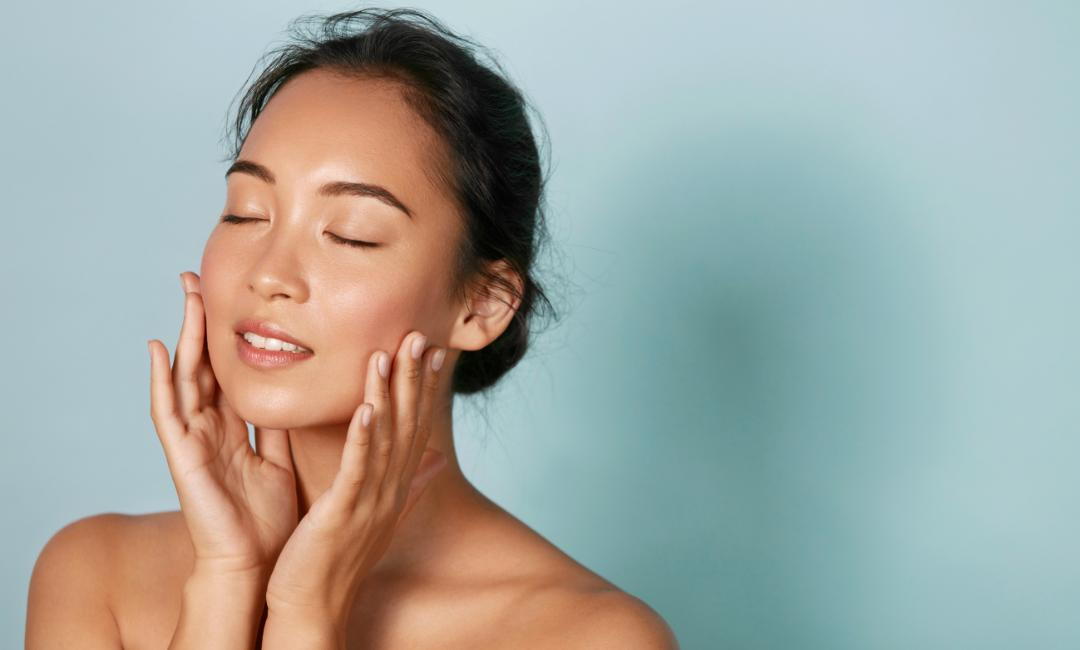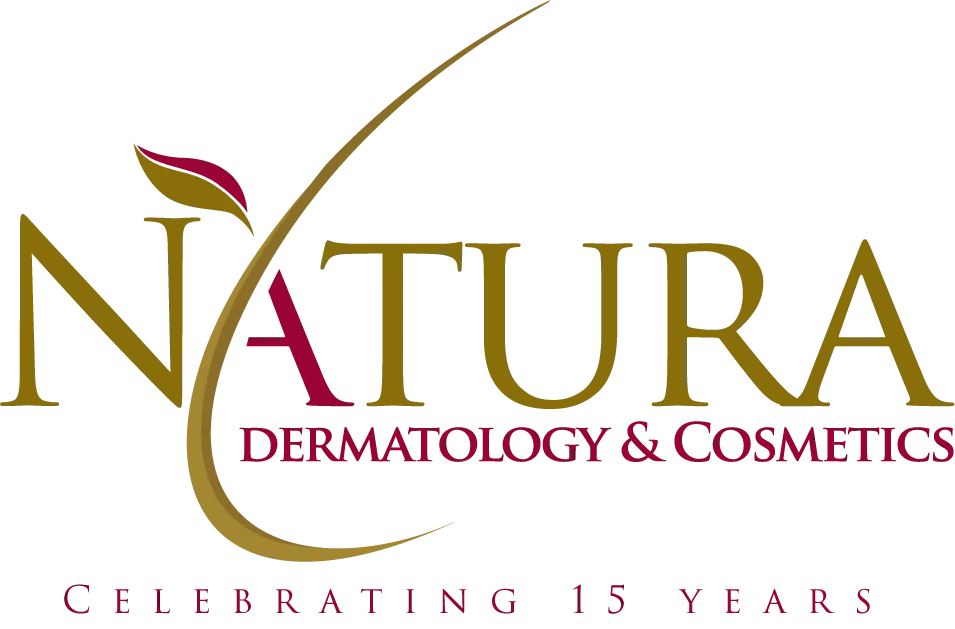Hyperpigmentation Treatment

- posted: Jul. 16, 2024
Dealing with dark spots around your mouth? Hyperpigmentation in this area is a common concern, but don't let it steal your confidence. The good news? There are safe and effective ways to fade those spots and get back to a brighter, even complexion.
In this guide, we'll cover:
The most common causes of hyperpigmentation around the mouth
Natural remedies you can try at home
Powerful medical treatments for stubborn spots
Expert tips for preventing hyperpigmentation from coming back
If you're ready to say goodbye to unwanted pigmentation, stick with us. We've got your back. And hey, if you're in the Fort Lauderdale area, our friends at Natura Dermatology & Cosmetics have helped tons of people just like you. We are experts in treating all sorts of skin concerns, and we are always up-to-date on the latest treatments. Just a thought.
What is Hyperpigmentation?
Before we discuss remedies and treatments, let's define hyperpigmentation. It's a common skin condition in which patches of skin become darker than the surrounding areas. This happens when the skin produces too much melanin, the pigment responsible for its color.
Think of it like an overzealous artist going overboard with a dark paintbrush. Hyperpigmentation isn't usually harmful, but it can be a cosmetic concern for many people.
It can show up in different forms, like:
Melasma: Larger patches of darkened skin, often triggered by hormonal changes.
Sunspots: Small, flat brown spots caused by sun exposure (also called age spots or liver spots).
Post-Inflammatory Hyperpigmentation (PIH): Dark spots that pop up after an injury or inflammation of the skin, like acne.
Hyperpigmentation can affect anyone, but it's more common in people with darker skin tones. And yes, it's a bummer when it shows up around your mouth, but don't worry – we're here to help you fade those shadows.
Why Are My Lips Framed in Shadows?
Alright, let's get down to the root of the problem. Why do those pesky dark spots show up around your mouth? Knowing the cause is the first step toward fixing it. Let's break it down:
Sun Exposure: The sun's rays are a major culprit. When your skin is exposed to UV light, it produces more melanin (the pigment that gives your skin its color). This can lead to darker patches, especially in areas that get a lot of sun, like your face.
Hormonal Changes: Pregnancy, birth control pills, and certain medical conditions can mess with your hormones, triggering an increase in excess melanin production. This often leads to melasma, a type of hyperpigmentation that commonly appears around the mouth.
Skin Inflammation or Injury: Ever noticed a dark spot after a pimple heals? That's post-inflammatory hyperpigmentation (PIH). It can also happen after a cut, burn, or other skin injuries.
Certain Medications: Some medications, like certain antibiotics and anti-seizure drugs, can cause hyperpigmentation as a side effect.
Underlying Medical Conditions: In some cases, hyperpigmentation can be a symptom of a deeper issue, like Addison's disease or other hormonal disorders.
Friction and Irritation: Constantly licking your lips or using harsh products can irritate the skin and trigger hyperpigmentation.
Pro Tip: If you're not sure what's causing your hyperpigmentation, it's always a good idea to talk to a dermatologist. They can help you figure out the underlying cause and recommend the best treatment options for you.
Home Remedies for Hyperpigmentation

Don't underestimate the power of your kitchen pantry. Some natural ingredients can work wonders for fading hyperpigmentation. Now, keep in mind, these remedies might take a bit longer to show results than medical treatments, but they're a great option if you prefer a gentle, DIY approach.
Lemon Juice: This citrusy superhero is packed with vitamin C, a natural brightening agent. Apply freshly squeezed lemon juice to the affected area with a cotton ball, leave it on for about 10 minutes, and rinse with cool water. But be careful. Lemon juice can be irritating to sensitive skin, so start with a diluted mixture and do a patch test first.
Aloe Vera: This soothing succulent isn't just for sunburns. It contains aloin, a compound that may help lighten hyperpigmentation. Apply pure aloe vera gel to the dark patches before bed and rinse it off in the morning.
Apple Cider Vinegar: This kitchen staple has mild exfoliating properties that can help slough off dead skin cells and fade skin pigmentation. Mix equal parts apple cider vinegar and water and apply it to the affected area for a few minutes. Rinse thoroughly. Again, start with a diluted mixture and be cautious if you have sensitive skin.
Turmeric: This golden spice has anti-inflammatory and antioxidant properties, making it a great addition to your skincare routine. Mix turmeric powder with a little honey or yogurt to form a paste and apply it to the dark skin spots. Let it sit for about 15 minutes and rinse with warm water.
Green Tea: This antioxidant powerhouse can help protect your skin from further damage and may even lighten hyperpigmentation. Brew a cup of green tea, let it cool, and apply it to your skin with a cotton ball.
Important Note: Nnatural remedies are not a quick fix. It may take several weeks or even months to see noticeable results. And if you have any concerns, always talk to your doctor or dermatologist before starting a new treatment.
Medical Treatments for Stubborn Hyperpigmentation
Sometimes, those DIY remedies just don't cut it. If your hyperpigmentation is sticking around like an unwanted houseguest, it might be time to call in the professionals. Dermatologists have a whole arsenal of treatments that can tackle even the most stubborn dark spots. Let's explore some of the most effective options:
Topical Medications
Hydroquinone: This prescription cream lightens the skin by reducing melanin production. It's often the first line of defense against hyperpigmentation.
Retinoids: These vitamin A derivatives speed up cell turnover, helping to fade dark spots and improve overall skin texture.
Azelaic Acid: This naturally occurring acid works by inhibiting melanin production and can be a gentler alternative for sensitive skin.
Kojic Acid: Derived from mushrooms, kojic acid also helps to lighten hyperpigmented areas.
Vitamin C Serums: Vitamin C is a powerful antioxidant that can brighten the skin and protect it from further sun damage.
Chemical Peels
Superficial Peels: These mild peels exfoliate the top layer of skin, revealing a fresher, more even complexion.
Medium Peels: These penetrate deeper into the skin, effectively targeting more stubborn pigmentation.
Deep Peels: These are the most intense peels, used for severe hyperpigmentation. They require a longer recovery time but can produce dramatic results.
Laser Therapy
Fractional Laser Resurfacing: This treatment targets specific areas of hyperpigmentation, stimulating collagen production and promoting skin renewal.
Intense Pulsed Light (IPL): IPL uses broad-spectrum light to break down excess pigment and improve skin tone.
Pigment-Specific Lasers: These lasers are designed to target melanin directly, making them highly effective for treating hyperpigmentation.
Microdermabrasion
This non-invasive procedure uses a diamond-tipped wand to gently exfoliate the skin, improving texture and reducing the appearance of dark spots.
Microneedling
This treatment involves creating tiny punctures in the skin with fine needles, stimulating collagen production, and enhancing the absorption of topical medications.
It's crucial to consult with a board-certified dermatologist like the experts at Natura Dermatology & Cosmetics to determine the best treatment plan for you. We can assess your individual needs and recommend the most appropriate options based on your skin type, the severity of your hyperpigmentation, and your budget.
Expert Tips for Prevention
You've put in the work to fade those dark spots, so let's make sure they don't stage a comeback. Here are some pro tips for keeping hyperpigmentation at bay:
Sunscreen is Non-Negotiable: Seriously, this is your #1 defense against hyperpigmentation. Rain or shine, slather on a broad-spectrum sunscreen with SPF 30 or higher every single day. And don't forget to reapply every two hours if you're spending time outdoors.
Shade Yourself: When the sun is at its strongest (usually between 10 a.m. and 4 p.m.), seek out shade or rock a wide-brimmed hat and sunglasses. Your skin will thank you.
Hands Off: Resist the urge to pick at your skin or pop pimples. This can lead to inflammation and make hyperpigmentation worse.
Gentle is the Name of the Game: Use a mild cleanser and avoid harsh scrubs or exfoliants, especially if you have sensitive skin.
Hydrate: Keeping your skin moisturized can help prevent irritation and inflammation, both of which can contribute to hyperpigmentation.
Antioxidant Power: Look for skincare products that contain antioxidants like vitamin C, vitamin E, and niacinamide. These can help protect your skin from damage and even out your skin tone.
Check Your Meds: If you're taking any medications, ask your doctor if they could be contributing to your hyperpigmentation. There might be an alternative option available.
If you're struggling with persistent hyperpigmentation, don't hesitate to seek help from a board-certified dermatologist like those at Natura Dermatology & Cosmetics. We can offer personalized advice and treatment options tailored to your specific needs.
FAQs
Does hyperpigmentation around the mouth go away?
The good news is that in many cases, yes. It often depends on the cause. For example, post-inflammatory hyperpigmentation (the kind you get after a pimple) usually fades on its own over time. But other types, like melasma, might need a little more help to disappear. Don't lose hope, though – with the right treatment, you can definitely see improvement.
How to get rid of discoloration around mouth naturally?
We covered some great natural remedies earlier, like lemon juice, aloe vera, and turmeric. These can be effective for mild hyperpigmentation. It's important to be patient and consistent with these remedies, as they may take some time to work.
Which deficiency causes hyperpigmentation around mouth?
While certain vitamin deficiencies (like vitamin B12) can sometimes contribute to hyperpigmentation, it's not usually the main culprit. Sun exposure, hormonal changes, and skin irritation are more common triggers. If you're concerned about a vitamin deficiency, it's always best to talk to your doctor.
Can you get rid of upper lip hyperpigmentation?
Absolutely. The same treatments that work for hyperpigmentation around the mouth can be used for the upper lip area. Whether it's natural remedies, topical medications, or professional treatments like lasers or chemical peels, there are plenty of options to help you achieve a more even skin tone.
What is melasma around the mouth?
Melasma is a type of hyperpigmentation that often appears as brown or grayish patches on the face, especially around the mouth and cheeks. It's often triggered by hormonal changes, like those that occur during pregnancy or with birth control use.
Wrapping Up
Patience and consistency are key, so don't get discouraged if you don't see results overnight. With the right approach, you can achieve a brighter, more even complexion.
Here's a quick recap of the essentials:
Know Your Enemy: Identify the cause of your hyperpigmentation.
Embrace Natural Allies: Try gentle home remedies first.
Call in the Pros: If needed, explore medical treatments with a dermatologist.
Prevention is Power: Protect your skin from the sun and other irritants.
Feeling overwhelmed or needing expert guidance? The team at Natura Dermatology & Cosmetics can create a personalized treatment plan tailored to your unique skin needs. We are your partners in achieving healthy, radiant skin, free from the shadows of hyperpigmentation. Don't hesitate to reach out and take the first step toward a brighter smile.
Contact Us
Our Locations
Broward Location
800 E Broward Blvd, Ste 507
Fort Lauderdale, FL, USA
Hours of Operation
8:30 am - 12:00 pm
1:30 pm - 5:00 pm
8:30 am - 12:00 pm
1:30 pm - 5:00 pm
8:30 am - 12:00 pm
1:30 pm - 5:00 pm
8:30 am - 12:00 pm
1:30 pm - 5:00 pm
8:30 am - 12:00 pm
1:30 pm - 5:00 pm
Closed
Closed


